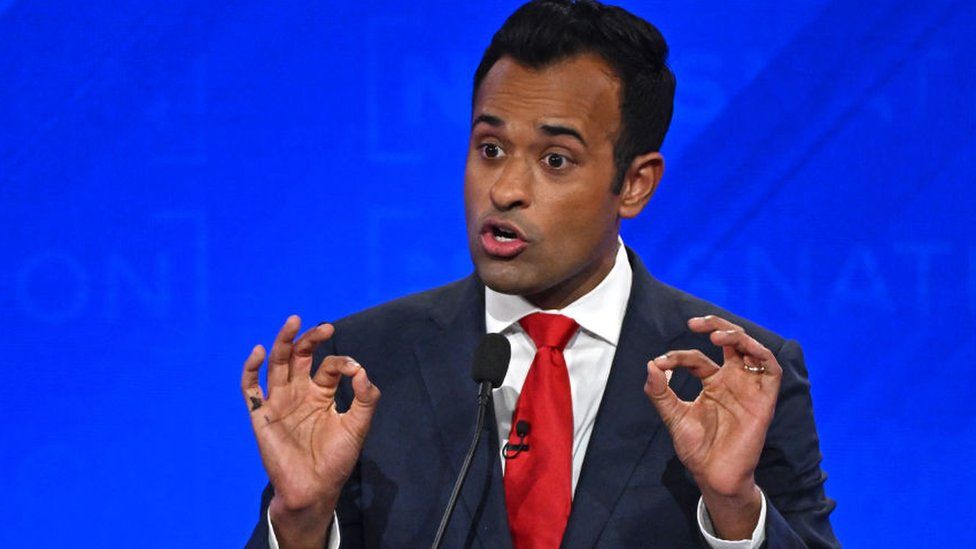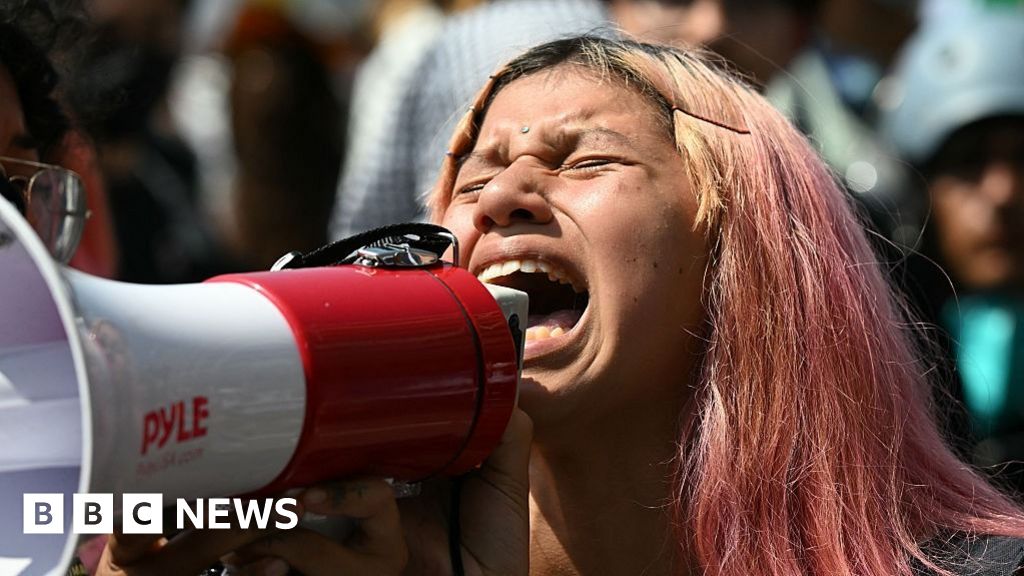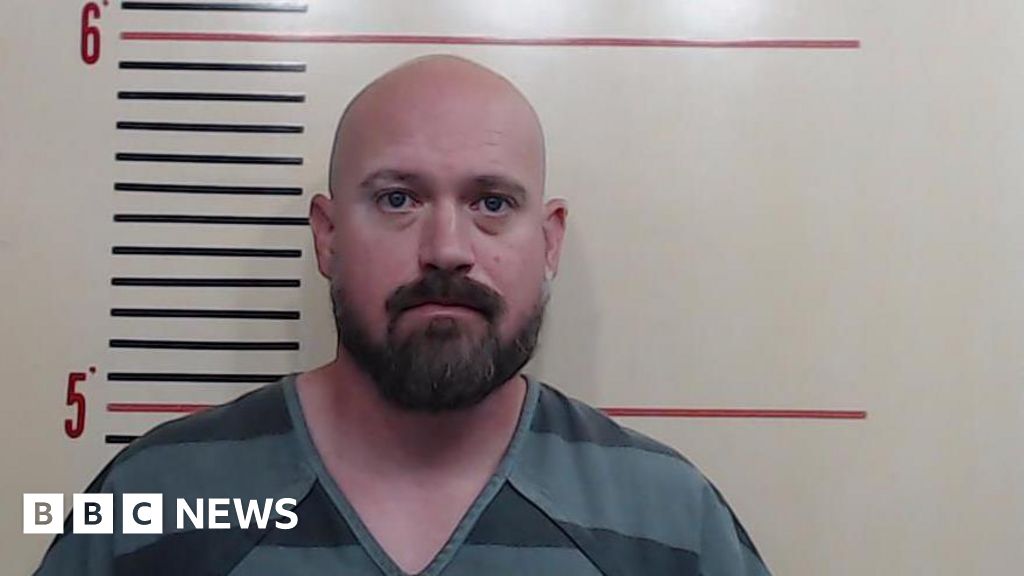ARTICLE AD BOX
 Image source, Getty Images
Image source, Getty Images
Vivek Ramaswamy shared a series of fringe theories at the last Republican debate.
The biotech entrepreneur listed off ideas that are more typically found on far-right message boards, rather than presidential debate stages.
"Why am I the only person on the stage at least who can say that [the Capitol riot on] January 6th now does look like it was an inside job?" he asked.
That was only the first controversial theory he shared Wednesday night.
"The 'great replacement' theory is not some grand right-wing conspiracy theory, but a basic statement of the Democratic Party's platform," he contended.
And: "The 2020 election was indeed stolen by Big Tech."
It is unclear what Mr Ramaswamy meant by some of these statements, but some of the phrases he used have a more specific and notorious meaning.
"Great replacement" is a far-right theory that states that a cabal of people - often named as "globalists", "elites" or Jews - is deliberately plotting to change the demographics of Western countries. The theory alleges this is being done through immigration, interracial marriage, reducing the birth rate and other means.
It is a version of the "white genocide" conspiracy theory which alleges that there is a plot to entirely "eliminate" the white race. That idea has been mentioned in documents left behind by several racially motivated attackers, including mass shooters in Christchurch, New Zealand, El Paso, Texas, and Buffalo, New York.
Whether Mr Ramaswamy knew that background is unclear. His campaign did not respond to requests for comment Thursday.
Following the debate, however, the unorthodox candidate reposted a message from a popular white nationalist account on X and commented that "the left" was "intentionally facilitating mass illegal migration".
Capitol riot misinformation
Mr Ramaswamy's contention that federal authorities somehow planned or executed the Capitol riot is a mainstay of far-right spaces online, despite proof that Donald Trump's supporters were energised by the former president's rhetoric and mistruths of a "stolen" election on 6 January.
After the debate, Mr Ramaswamy toyed with the idea further.
In a CNN interview and on X, formerly Twitter, he temporarily toned down his message to the claim that "there was at the very least entrapment of peaceful protesters".
But later he doubled down again, alleging on social media that the riot was somehow orchestrated by "the deep state" - or some other form of the US government.
This is not the first time that Mr Ramaswamy delved into this kind of conspiratorial thinking.
Earlier this year he brought up 9/11 conspiracy theories in an interview with The Atlantic magazine and said: "I think it is legitimate to say, how many police, how many federal agents were on the planes that hit the Twin Towers?"
He later focused his criticism on US government secrecy, particularly about the alleged role of Saudi Arabia in the attacks. He mentioned that theory again at the debate as well.
Image source, X/Vivek Ramaswamy
Image caption,The Republican candidate invited noted conspiracy theorist Alex Jones onto his podcast.
Why now?
Mr Ramaswamy's statements during Wednesday's debate won him the support of a number of influential characters on the far right, who see any attention as an advancement of their cause. That could explain his rhetoric.
Cynthia Wong, a professor at the Kellogg School of Management at Northwestern University and an expert in conspiratorial beliefs, says that Mr Ramaswamy's turn towards conspiratorial thinking is an expected development in the current political climate.
"He might actually believe in these theories, but there is also a benefit in using them, because it helps people - his potential supporters - make sense of the world," she says. "Using this powerful language is actually very attractive for people during uncertain times… More rational explanations don't have the same punch."
Mike Rothschild, a journalist and author of the book Jewish Space Lasers: The Rothschilds and 200 Years of Conspiracy Theories, says that Mr Ramaswamy - who enjoyed a sudden spike in presidential polling before stalling in recent months - is looking beyond the current campaign.
"He knows the clock is running out on his presidential campaign, but it's just starting on a bigger career in media that revolves around building a fanbase that believes in conspiracy theories," he says.
Mr Ramaswamy has used his own campaign podcast to cultivate that specific fanbase. He recently invited conspiracy theorist Alex Jones of Infowars for an hour-long chat and expressed sympathy for Mr Jones over his loss of a defamation lawsuit brought by Sandy Hook school shooting victims.
Ms Wong says Mr Ramaswamy has little to lose by bringing up fringe ideas in a race where the frontrunner - Mr Trump - is himself prone to repeating conspiracy theories.
"I can see this as a Hail Mary, but if it doesn't work and he does lose, he's still supporting the overall cause in the Republican Party," she says, "because a lot of what he is saying aligns with what Trump is saying."
With reporting by Shayan Sardarizadeh

 1 year ago
34
1 year ago
34








 English (US) ·
English (US) ·